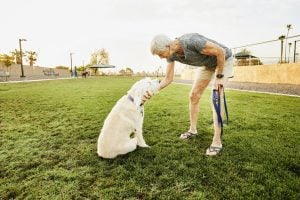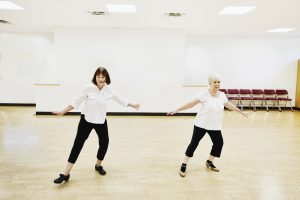A new piece of published research examining the anxiety levels of skiers across Sweden provides scientific support to the anecdotal claims active individuals have been making for years. This population-based large-scale study from the University of Oslo found those who had exercised regularly had a significantly lower incidence of anxiety than those who had not engaged in physical activity.

The link between exercise and mental wellbeing is well-established. The World Health Organization's guidelines recommend 150 minutes of moderate exercise per week for healthy adults. In the Swedish study above researchers tracking nearly 400,000 people found that those with an active lifestyle were 60% less likely to develop anxiety compared to less physically active people over a 21-year period. It’s unfortunate that people with anxiety also tend to lead more sedentary lifestyles and engage in less intense forms of physical activity, because exercise is one of the most effective ways to prevent and treat anxiety.

"I've seen firsthand the incredible benefits that even the slightest amount of regimented exercise can have on anyone. Although medications can play an important role in mental health, as well as pain and disease management, they have their limitations. And with a mounting crisis in prescription drug and opiate usage, we as a clinical community must look at other ways to help patients boost the quality of their lives," Vernon B. Williams, MD, Director, Center for Sports Neurology & Pain Management at Cedars Sinai Kerlan-Jobe Institute, Los Angeles said.

But these aren't the only datapoints supporting the benefits of exercise in relation to our mental wellbeing. Numerous other studies have shown that exercise can reduce anxiety, improve mood, and help people cope with stress as well. But how does it all work?
First, exercise takes your mind off whatever is causing your anxiety.
Second, it lowers muscle tension throughout your body, helping to ease the physical symptoms of anxiety.
Third, it increases the availability of important anti-anxiety neurochemicals in your brain, including serotonin, gamma aminobutyric acid (GABA), brain-derived neurotrophic factor (BDNF), and endocannabinoids – the organic chemicals your body produces to regulate processes and maintain harmony.
Fourth, it activates the frontal regions of your brain responsible for executive function, which helps to control the amygdalathe part of your brain that responds to real or imaginary threats.
And finally, exercising regularly builds up your psychological resilience against negative emotions. A very interesting territory which researchers are only beginning to explore.

There are a number of different types of exercise that can be helpful for treating anxiety, but some of the most effective exercises include aerobic activities such as walking, running, and cycling; resistance training such as weightlifting; and mind-body activities such as yoga and Tai Chi.
There are a few things to keep in mind when you’re starting out:
1 - Pick an activity that you enjoy: This will make it more likely that you’ll stick with it.
2 - Start slowly: Don’t try to do too much too soon. Begin with just a few minutes of activity a day and gradually increase as you feel more comfortable.
3 – Make sure to warm up and cool down with each exercise session.
4 - Be consistent: Make exercise a regular part of your routine.

The goal isn't to suddenly become an ultra-endurance runner. Even short periods of physical activity can offer substantial advantages. If you’re unable to commit to a 30-minute walk, for example, try several 10-minute walks instead. Getting active throughout the day can have cumulative health benefits. Take a break in the middle of the morning or afternoon to move and stretch, go for a walk, or do some squats or pushups. Interval training, which involves short (60 to 90 seconds) bursts of intense activity at almost full effort, can be an effective, efficient and safe way of gaining many of the benefits of longer duration exercise. As the saying goes – different strokes for different folks. So do what works for you. What's most important is making regular physical activity part of your lifestyle.

So if you're looking for an effective way to treat your anxiety, consider adding some exercise to your routine. It just might be the natural remedy you've been looking for. If you’re not sure where to begin, there are plenty of resources available to help you get started with exercise for anxiety. For more information, please consult with your doctor or a qualified mental health professional. And thanks for reading!
Learn more about SurvivorNet's rigorous medical review process.

